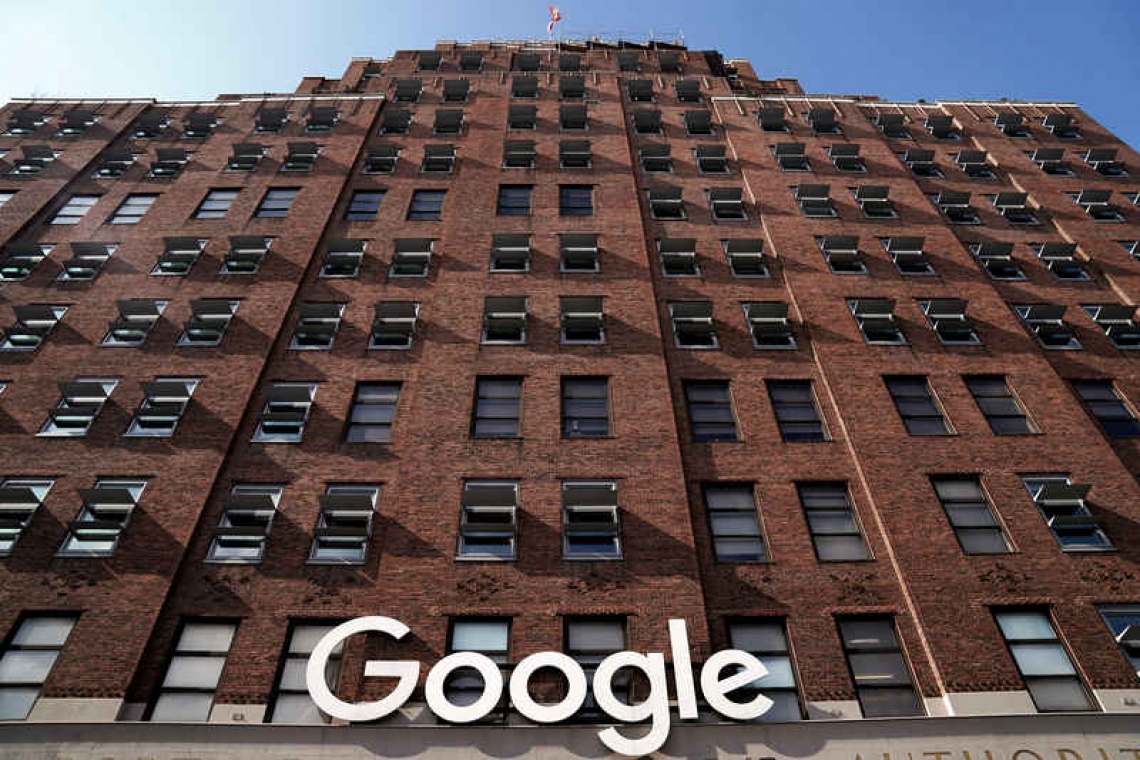WASHINGTON--The U.S. sued Google on Tuesday, accusing the $1 trillion company of illegally using its market muscle to hobble rivals in the biggest challenge to the power and influence of Big Tech in decades.
The Justice Department lawsuit could lead to the break-up of an iconic company that has become all but synonymous with the internet and assumed a central role in the day-to-day lives of billions of people around the globe. Such an outcome is far from assured, however, and the case is likely to take years to resolve.
The lawsuit marks the first time the U.S. has cracked down on a major tech company since it sued Microsoft Corp for anti-competitive practices in 1998. A settlement left the company intact, though the government's prior foray into Big Tech anti-trust - the 1974 case against AT&T - led to the breakup of the Bell System.
The federal government's complaint against Alphabet Inc's, which alleges that Google acted unlawfully to maintain its position in search and search advertising on the internet, was joined by 11 states. "Absent a court order, Google will continue executing its anticompetitive strategy, crippling the competitive process, reducing consumer choice, and stifling innovation," the lawsuit states.
The government said Google has nearly 90% of all general search engine queries in the United States and almost 95% of searches on mobile. Attorney General Bill Barr said his investigators had found Google does not compete on the quality of its search results but instead bought its success through payments to mobile phone makers and others.
"The end result is that no one can feasibly challenge Google's dominance in search and search advertising," Barr said.
When asked on a conference call if the department was seeking a breakup or another remedy, Ryan Shores, a Justice Department official, said, "Nothing is off the table, but a question of remedies is best addressed by the court after it's had a chance to hear all the evidence."
In its complaint, the Justice Department said that Americans were hurt by Google's actions. In its "request for relief," it said it was seeking "structural relief as needed to cure any anti-competitive harm." "Structural relief" in antitrust matters generally means the sale of an asset.
"Ultimately it is consumers and advertisers that suffer from less choice, less innovation and less competitive advertising prices," the lawsuit states. "So we are asking the court to break Google's grip on search distribution so the competition and innovation can take hold."
Google called the lawsuit "deeply flawed," adding that people "use Google because they choose to - not because they're forced to or because they can't find alternatives."
Investors seemed to shrug off news of the lawsuit, sending shares Alphabet up 1.9% to $1,563.51 on Tuesday afternoon. "It's like locking the proverbial door after the horse has bolted," said Neil Campling, head of tech media and telecom research at Mirabaud Securities in London, who added Google has already invested billions of dollars in infrastructure, technologies and talent. "You can’t simply unwind a decade of significant progress."
Tuesday's federal lawsuit marks a rare moment of agreement between the Trump administration and progressive Democrats. U.S. Senator Elizabeth Warren tweeted on Sept. 10, using the hash tag #BreakUpBigTech, that she wanted "swift, aggressive action."
Still, coming just days before the U.S. presidential election, the filing's timing could be seen as a political gesture since it fulfills a promise made by President Donald Trump to his supporters to hold certain companies to account for allegedly stifling conservative voices. Republicans often complain that social media companies including Google take action to reduce the spread of conservative viewpoints on their platforms. Lawmakers have sought, without explaining how, to use antitrust laws to compel Big Tech to stop these alleged limitations.







